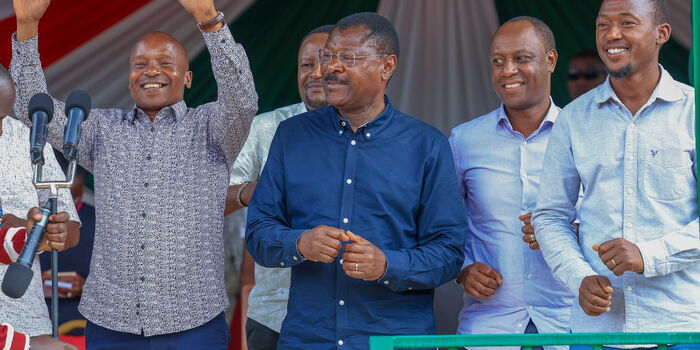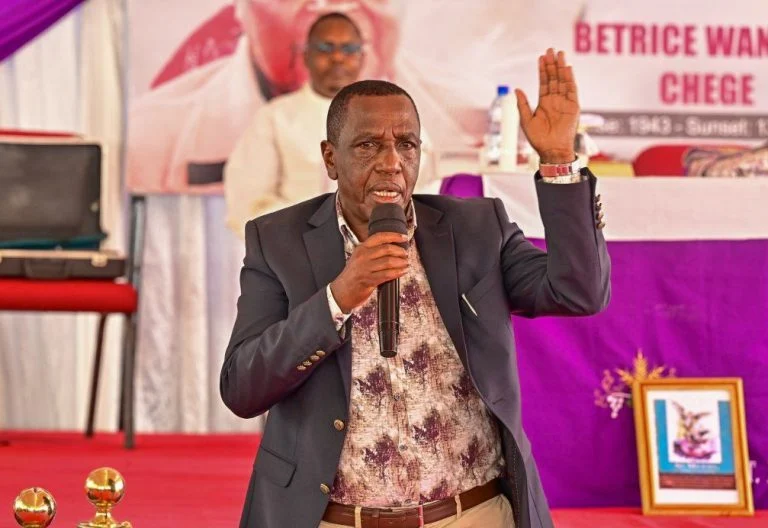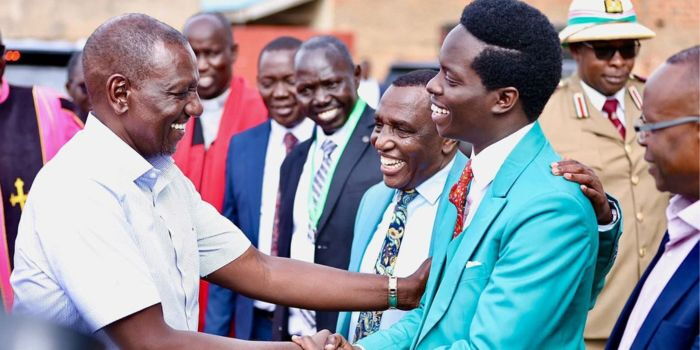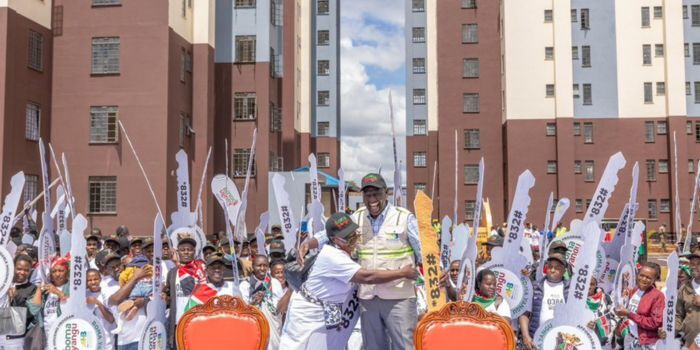
National Assembly Speaker Moses Wetang’ula has publicly sounded the alarm over Wiper Party leader Kalonzo Musyoka’s apparent alliance with former Deputy President Rigathi Gachagua — a move he says could “backfire disastrously.”
Speaking at a women’s empowerment event in Kitui Central on Monday, June 9, Wetang’ula didn’t hold back. He delivered a sharp, almost prophetic warning to Kalonzo, cautioning him against cozying up to what he described as a “toxic brand of politics.”
“Don’t let anyone mislead or control you, my brother Kalonzo,” Wetang’ula said. “Your friends may not be someone else’s friends. And your enemies? They may be dragging you down.”
While he stopped short of naming Gachagua directly, the Speaker’s remarks carried an unmistakable sting. He branded Kalonzo’s new political partner as a man “driven by a spirit of bad temper” — a clear jab at Gachagua’s often combative political tone.
The gravity of the moment was not lost on the audience.

Wetang’ula reminded Kalonzo of his legacy — once serving as Vice President under Mwai Kibaki — and urged him not to gamble it all by aligning with what he called “leaders who have nothing to offer but division.”
“Kalonzo, this is not who you are. Leave those people alone and come back to a political path that unites, not divides,” he urged, eyes locked on the crowd, voice unwavering.
The clash seems to have been sparked by a recent controversial remark from Gachagua, who referred to members of the Kamba community as “cousins” — a statement that lit a firestorm of criticism across the nation.
Wetang’ula didn’t mince words in response.
“We have no room for ethnic politics in Kenya,” he said. “To call a whole community your ‘cousins’ is not just false — it’s dangerous. That’s not the kind of talk we need in a nation trying to heal and grow.”
Adding to the storm, President Ruto’s close aide Farouk Kibet had also slammed Gachagua just a day earlier — raising eyebrows about growing fractures within Kenya Kwanza itself.
Kalonzo, meanwhile, has been stepping up his rhetoric. With support from Gachagua, former Defense CS Eugene Wamalwa, and NARC Kenya leader Martha Karua, he has been calling for the ouster of President William Ruto in 2027 — borrowing heavily from Raila Odinga’s past strategies.
Though the opposition alliance has yet to unveil a formidable candidate to rival Ruto, Kalonzo remains defiant. Speaking in Voi recently, he declared that “Kenyans are tired of lies, corruption, and tribalism,” and vowed to fight for regime change.
“This government must fall,” Kalonzo said. “We refuse to accept appointments based on tribe and politics built on deception. The time has come.”
The political scene in Kenya is now more volatile than ever — with old alliances crumbling, new ones forming, and national unity hanging in the balance.







